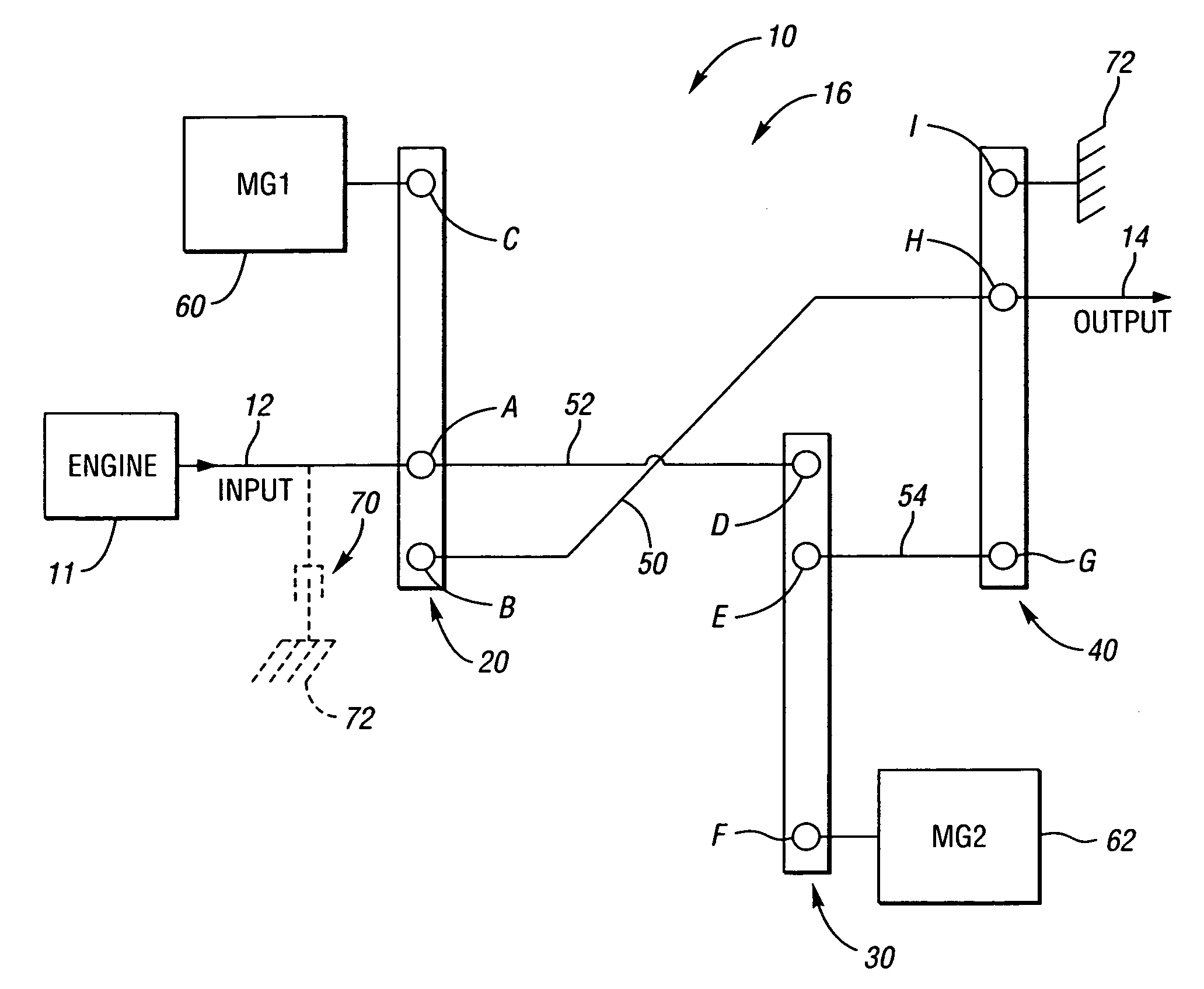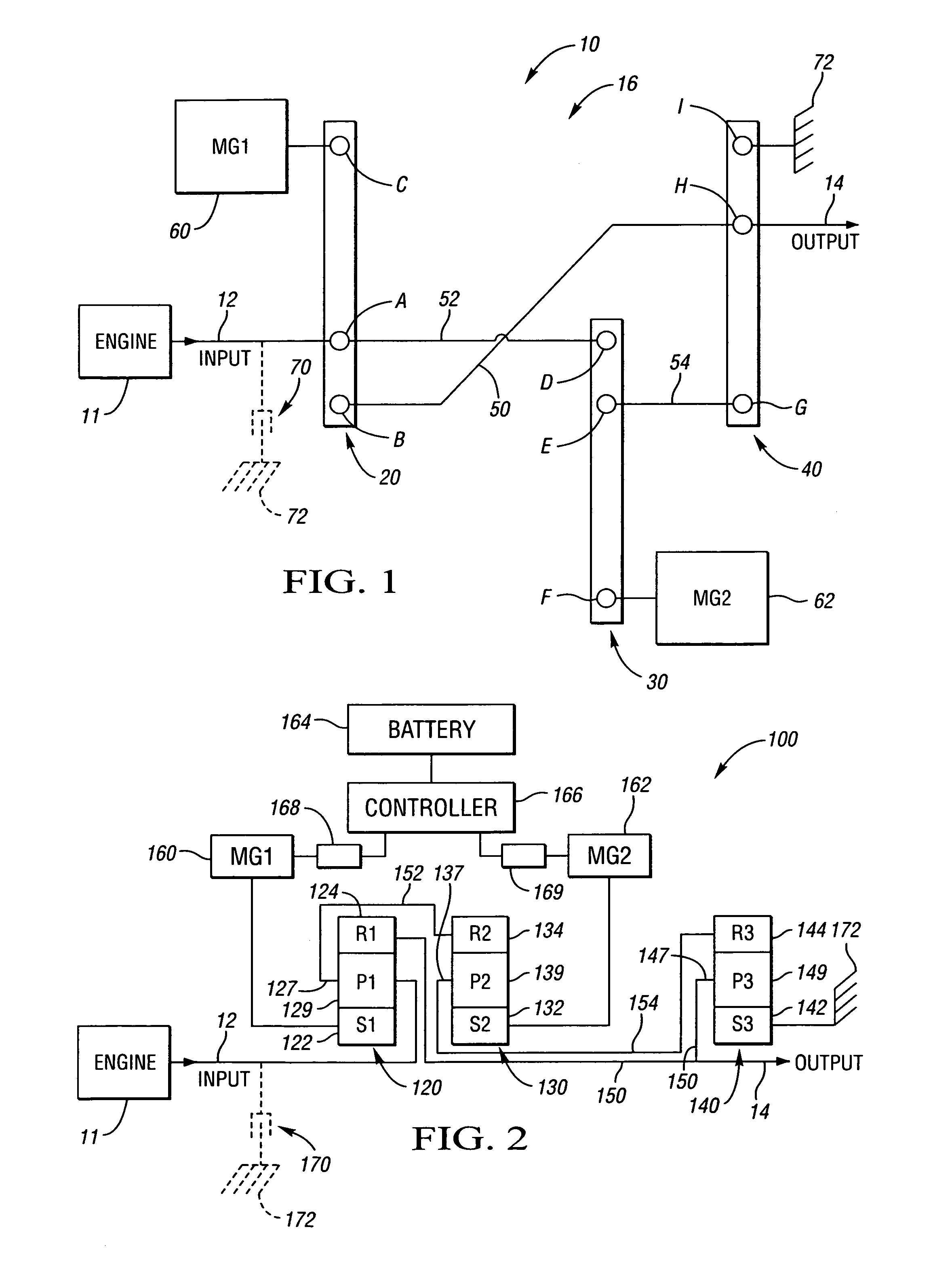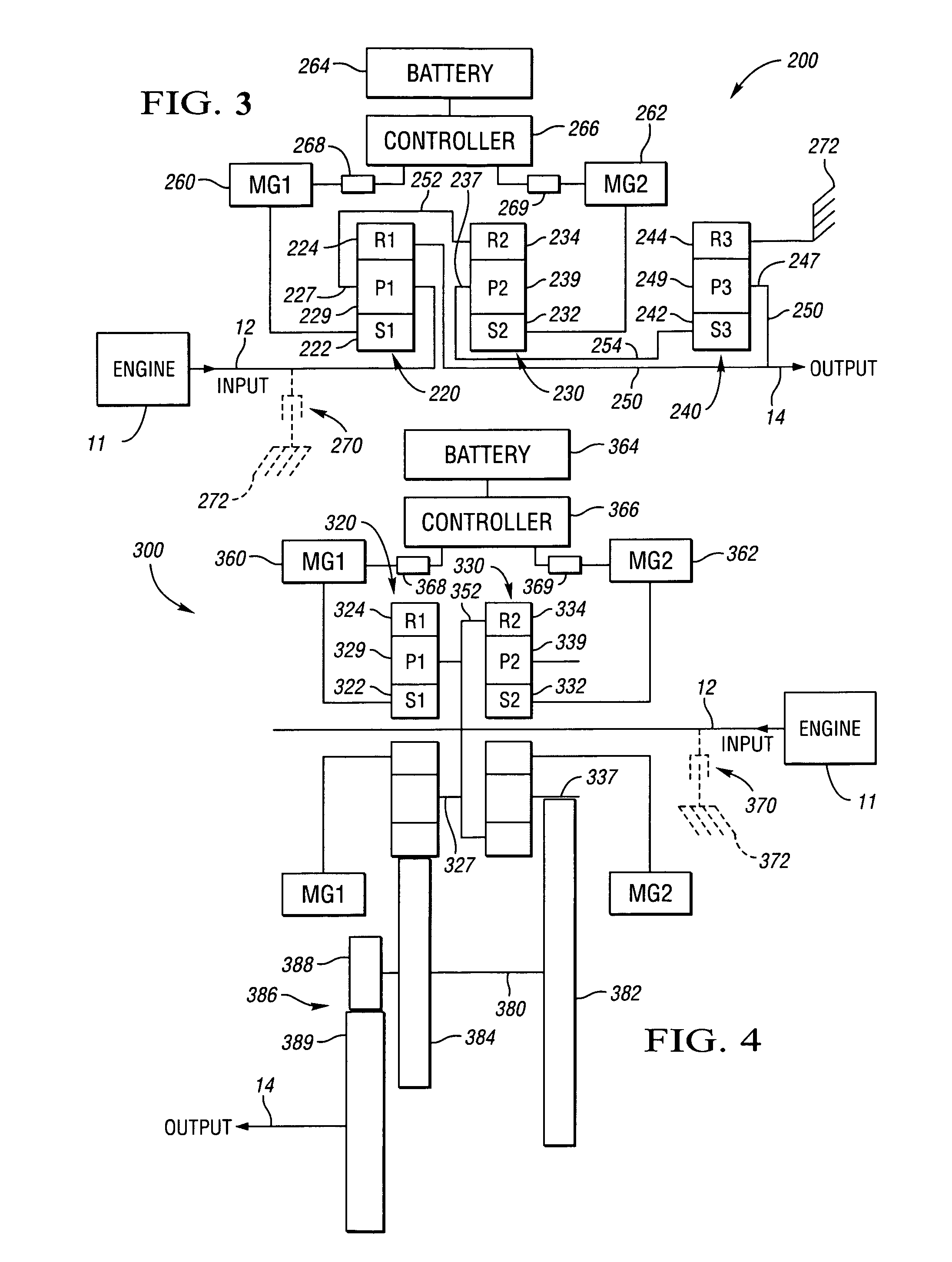Single mode, compound-split transmission with dual mechanical paths and fixed reduction ratio
a transmission and mechanical path technology, applied in the direction of electric propulsion mounting, electric gearing, transportation and packaging, etc., can solve the problems of series electric drive weight and cost, associated spin loss and accessory power requirements, useful energy loss, etc., to reduce electrical path power requirements, low torque design, and high speed ratio
- Summary
- Abstract
- Description
- Claims
- Application Information
AI Technical Summary
Benefits of technology
Problems solved by technology
Method used
Image
Examples
first embodiment
[0045]The transmission 10 represented in lever diagram form in FIG. 1 can be realized by a number of design alternative embodiments, including those represented by stick diagrams in FIGS. 2 and 3 which are longitudinal designs. FIG. 2 shows a transmission 100 designed to receive at least a portion of its driving power from the engine 11. The engine 11 has an output shaft that serves as an input member 12 of the transmission 100. An output member 14 of the transmission 100 connects to a final drive unit (not shown) to deliver driving power to the wheels of a vehicle. The transmission 100 includes three simple planetary gear sets. A first planetary gear set 120 includes a sun gear member 122 (designated S1), a ring gear member 124 (designated R1) and a carrier member 127 that rotatably supports a plurality of pinion gears 129 (designated P1) in meshing engagement with both the sun gear member 122 and the ring gear member 124.
[0046]The transmission 100 also includes a second planetary ...
second embodiment
[0055]The stick diagram of FIG. 3 embodying the lever diagram 16 of FIG. 1 is similar to the stick diagram of FIG. 2, but changes the reduction gear connections to give a higher reduction ratio. FIG. 3 shows a transmission 200 designed to receive at least a portion of its driving power from the engine 11. The engine 11 has an output shaft that serves as an input member 12 of the transmission 200. An output member 14 of the transmission 200 connects to a final drive unit (not shown) to deliver driving power to the wheels of a vehicle. The transmission 200 includes three simple planetary gear sets. A first planetary gear set 220 includes a sun gear member 222 (designated S1), a ring gear member 224 (designated R1) and a carrier member 227 that rotatably supports a plurality of pinion gears 229 (designated P1) in meshing engagement with both the sun gear member 222 and the ring gear member 224.
[0056]The transmission 200 also includes a second planetary gear set 230 that includes a sun ...
third embodiment
[0065]FIG. 4 is another embodiment of an electromechanical transmission 300 within the scope of the invention. The transmission 300 has a transverse design, utilizing a transfer shaft with transfer gears, including a reduction gear, to provide a reduction ratio in a second mechanical power path. Thus, the third lever 40 of FIG. 1 is replaced by the transfer axis and transfer gears as described below.
[0066]The transmission 300 is designed to receive at least a portion of its driving power from the engine 11. The engine 11 has an output shaft that serves as an input member 12 of the transmission 300. An output member 14 of the transmission 300 connects to a final drive unit (not shown) to deliver driving power to the wheels of a vehicle. The transmission 300 includes two simple planetary gear sets. A first planetary gear set 320 includes a sun gear member 322 (designated S1), a ring gear member 324 (designated R1) and a carrier member 327 that rotatably supports a plurality of pinion ...
PUM
 Login to View More
Login to View More Abstract
Description
Claims
Application Information
 Login to View More
Login to View More - R&D
- Intellectual Property
- Life Sciences
- Materials
- Tech Scout
- Unparalleled Data Quality
- Higher Quality Content
- 60% Fewer Hallucinations
Browse by: Latest US Patents, China's latest patents, Technical Efficacy Thesaurus, Application Domain, Technology Topic, Popular Technical Reports.
© 2025 PatSnap. All rights reserved.Legal|Privacy policy|Modern Slavery Act Transparency Statement|Sitemap|About US| Contact US: help@patsnap.com



